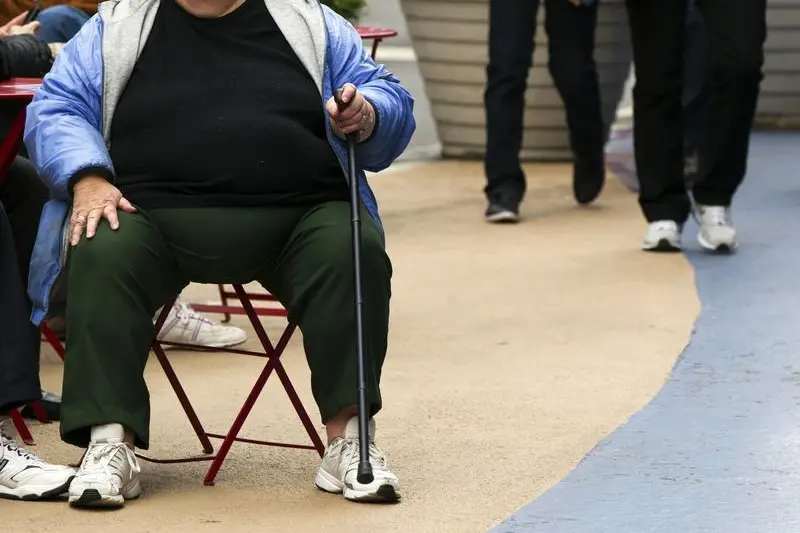PHOTO
Lack of physical exercise, avoidance of exposure to sunlight and wrong eating habits are the three main reasons that push Saudis to suffer chronic diseases such as diabetes, cardiovascular ailments, nerve diseases, peptic ulcers, tension and headache and back pain.
Dr. Asaad Al-Nimr, a psychologist, disclosed this during a lecture at Awamiya Cultural Society. He said 31.2 percent of highly obese women contracted diseases for not practicing physical exercises. About 33.8 percent of women suffer from obesity.
“Studies have also showed that 25.1 percent of women suffer from obesity in the abdominal area and while 47.1 percent suffer from excessive obesity in the same area,” Al-Watan Arabic daily quoted Al-Nimr as saying.
Dr. Al-Nimr emphasized the important role being played by psychiatrists in treating patients with chronic diseases and called for employment of more psychologists at the departments of chronic diseases in hospitals in order to improve condition of patients and cut medical spending on them.
“The presence of psychiatrists and psychologists in our hospitals will increase effectiveness of medical services,” he said, adding, that psychological approach would contribute to further enhancing the condition of patients, especially those suffering from acute pain.
He said behavioral support given by psychologists would help patients relax properly, adopt healthy practices such as quit smoking, practice regular exercise and follow a healthy food regime. “All these will have a positive impact on the patient and reducing symptoms of diseases.”
A person experiencing chronic pain is continually in quest of relief that often remains elusive, which leads to feelings of helplessness, hopelessness, demoralization, and outright depression.
Emotional distress may be attributed to various factors, including inadequate resources, overuse of medication, disability, financial difficulties, litigation, disruption of usual activities, inadequate social support, and sleep disturbances.
“Chronic pain represents a demoralizing situation; the individual with pain not only faces the stress created by the pain but also experiences a cascade of ongoing stressors that compromise all aspects of life. Living with chronic pain requires considerable emotional resilience, tends to deplete emotional reserve, and taxes not only the pain sufferer but also the capability of family members and significant others to provide support,” said an expert while stressing the importance of psychological approach to treat such patients.
A large body of evidence demonstrates that psychological factors can interfere with or hinder a person’s ability to cope with the pain experience. As a result, psychological intervention in the assessment and treatment of chronic pain is becoming standard practice.
Psychological treatment can focus on the emotional distress that accompanies chronic pain and provide education and training in the use of cognitive and behavioral techniques, which may reduce perceptions of pain and related disability, the expert said.
With increasing frequency, psychotherapy practitioners are encountering patients who struggle with enduring physical illnesses, such as cancer, cardiovascular disease, AIDS, diabetes, and kidney disease. Chronic physical illnesses have a common psychological thread: The individual's experience of life will never again return to the pre-illness condition and his strong desire to return to a normal life, the expert said.
© Copyright 2018 The Saudi Gazette. All Rights Reserved. Provided by SyndiGate Media Inc. (Syndigate.info).





















